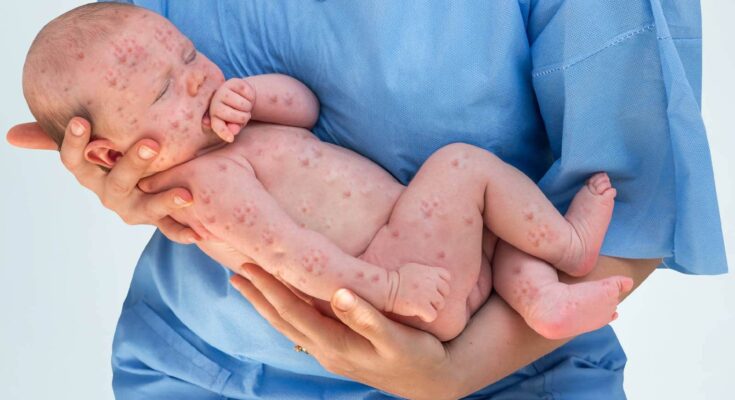A measles outbreak in Mumbai has put children’s parents on tenterhooks about the viral disease which mostly affects kids. Measles, which can lead to full-body rash and flu, is more likely to spread and cause outbreaks among those who are unvaccinated. Measles hs no cure, and the MR vaccine or Measles-Rubella vaccine is the only way to prevent contracting it.
According to the Ministry of Health and Family Welfare, every year, nearly 2.7 million children in India get measles. Those who survive, suffer from serious complications including diarrhoea, pneumonia and malnutrition.
This underlines the importance of the MR vaccine to prevent measles, asserts Dr Ganesh Shivmurti Badge, Consultant Pediatric Intensivist, Manipal Hospitals, Kharadi.
“The MR vaccine or MMR vaccine is very important for every individual as it contains components to fight against measles, mumps and rubella,” Dr Badge tells Health Shots.

What is measles?
Measles is a type of viral disease in which the person suffers from viral fever, rashes, and coughing and there is a decrease in immunity. Due to a decrease in immunity, a person is more vulnerable to other diseases like ear infections, pneumonia and even tuberculosis.
Mumps is an infection that affects the salivary gland, causing swelling in major parts of the body like brain, spinal cord and testes. In the same way, rubella affects women during pregnancy most of the time and can even be transmitted to the newborn baby. Therefore, it is recommended to get the vaccinations on a timely basis to reduce any risk factors.
Doses of MR vaccine to avoid measles
There are 3 doses of MR vaccine that need to be given to children, shares Dr Badge.
* The first dose should be given after 9 months
* The second dose should be given after 15 months
* The third dose should be given between the age of 5 to 6 years.
Does the vaccine eliminate the possibility of contracting measles by a 100 percent? Dr Badge says, “Even after vaccination, there is a possibility to get infected and it is important to pay special attention to the initial signs.”

Signs of measles and how to take care
Rashes are one of the most common symptoms and as soon as the rash appears and is present for the last 3 to 4 days, the person must be isolated. This is to ensure that the virus is not spread as it gets transferred through droplets while coughing and sneezing.
The patient should not be exposed to the outside environment as their immunity is weak. Even if they are exposed, they must be given the vaccine within 72 hours. If the patient is serious, they can be given measles immunoglobulin.
A good diet, proper hydration and hygiene along with antibiotics also play an important role in preventing the risk of this condition.
Source link




